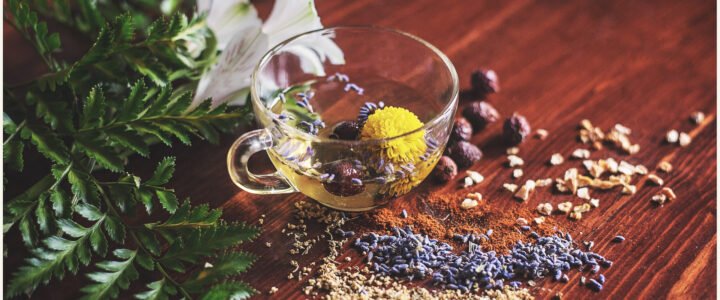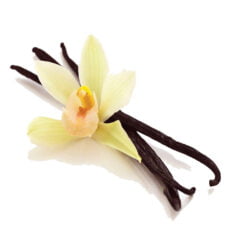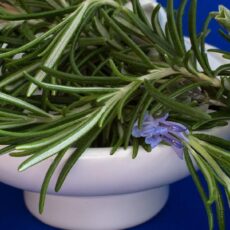
8 unexpected teas for good health
Herbal style teas have been used for hundreds of years for their medicinal and therapeutic properties in almost all countries across the globe.
Strictly speaking, herbal tea isn’t actually tea as it has no caffeine – to be more accurate, it’s a tisane or infusion of herbs, flowers, fruits, or leaves. It’s worth noting here that green tea, isn’t actually a herbal tea, even though you can get some varieties that have been blended with other plants such as chamomile.
But, since we’re all pretty much used to calling them tea, let’s continue to do so here.
While we’re all familiar with some of the most common herbal teas – like chamomile and peppermint – there are some other, less common teas that have some incredible health benefits. Let’s take a look at some of the best teas for health and what they can do for you.
 Subscribe to our monthly health email
Subscribe to our monthly health email
Ginger Tea
Warming and stimulating, ginger tea has long been considered the best herbal tea for nausea, but it also has a truckload of other benefits such as fighting inflammation and boosting the immune system. In aromatherapy, ginger is used for a range of purposes, including as an analgesic and to stimulate circulation. Because of its painkilling effects and digestive benefits, it can be useful for aiding digestion and relieving IBS as well.
Rosehip tea
Made from the fruit (or ‘hips’) of rose plants, rosehip tea is high in vitamin C, antioxidants, and flavonoids. All of these things combine to make it excellent for boosting the immune system, helping with decreasing blood pressure, relieving gout and inflammation. It can also increase skin elasticity and benefit skin conditions like eczema. Studies have also shown that rosehip tea can help with digestion and detoxification, by increasing metabolism and flushing toxins from the system.
Passionflower tea
In aromatherapy, passionflower oil is used to help with insomnia and anxiety and passionflower tea can have some of the same effects making it possibly the best herbal tea to drink at bedtime. While it’s renowned for helping with sleep disorders, passionflower tea is also effective in relieving menopausal symptoms, easing depression, lowering blood pressure, and promoting healing. It also can help relieve some of the mental symptoms of opiate withdrawal including agitation and anxiety. For a fairly bland-tasting tea, passionflower packs a lot of punch!
Dandelion Tea
Dandelion tea has a myriad of health benefits making it a wonderful herbal infusion. For starters, it promotes the breakdown of fat and cholesterol, so it’s a great ‘slimming’ concoction. It also stimulates digestion and acts as a diuretic to help with water retention issues. If that’s not enough for you, its iron content is useful for protecting against anemia and it’s full of minerals that help with maintaining healthy bones.
Violet tea
A little more unusual, violet tea is loaded with vitamins A and C, both of which are great for skin health and for boosting the immune system. It’s also renowned for helping with respiratory problems like asthma and relieving headaches and inflammation. It might be a little hard to find, but if you’re interested in trying all of the best teas for health, it will be worth the search.
Cinnamon Tea
Spicy and warming, cinnamon tea has long been used for boosting cognitive speed and increasing focus so cinnamon is the best herbal tea for drinking during work or study. Cinnamon is also calming for upset stomachs, can aid digestion, and boost immunity.
Fennel Tea
Fennel tea is extremely beneficial for aiding digestion: from relaxing digestive muscles to help with IBS, to reducing indigestion and acid reflux by regulating the PH balance in your stomach, fennel tea can also bring relief by reducing the effects of food poisoning, making it a great addition to your medicine cupboard for emergencies. For women, the estrogen-like qualities of fennel tea can also help with regulating menstruation.
Holy Basil Tea
Holy Basil is one of the most renowned herbs on the planet from a medicinal standpoint. It’s full of Vitamin K, making it great for heart health and bone mineralization. It’s also well respected in western medicine as being powerfully effective in reducing stress and anxiety. It can also be useful in promoting dental health making it a good choice as an after-meal beverage!
With all of these great herbal infusions to choose from – along with the dozens of other options that we haven’t looked at here – we’re confident that you’ll be able to find a refreshing beverage that is great for your health and exactly your cup of tea!
Photo by Lisa Hobbs on Unsplash
Monthly healthy email tips



